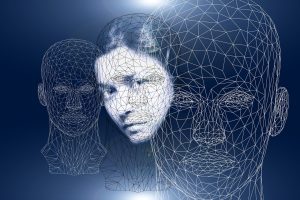Alternative Therapy Options for ADHD in 2023
Attention Deficit Hyperactivity Disorder (ADHD) is a neurodevelopmental disorder that affects both children and adults. While traditional treatments like medications and behavior modification have been effective for many individuals, there has been growing interest in alternative therapies that offer more holistic approaches to managing ADHD symptoms. In this blog post, we will explore some of the latest therapy options available for those living with ADHD.
1. Mindfulness-Based Therapies: Mindfulness-based interventions have gained popularity in recent years due to their ability to reduce stress, improve emotional regulation, and enhance cognitive functioning. For individuals with ADHD, mindfulness-based therapies can help develop greater self-awareness, attention, and impulse control. One example is Mindfulness-Based Stress Reduction (MBSR), which combines meditation techniques with education about the application of mindfulness principles in daily life. Another option is Dialectical Behavior Therapy (DBT), which integrates mindfulness practices with skills training in emotion regulation, distress tolerance, and interpersonal effectiveness.
2. Cognitive Training: Cognitive training programs aim to improve specific aspects of cognition, such as working memory, executive functions, or processing speed. These exercises often involve computerized tasks that require sustained attention, problem-solving, or decision-making. Research suggests that cognitive training can lead to improvements in academic performance, social interactions, and overall quality of life among individuals with ADHD. Examples of evidence-supported cognitive training programs include CogMed, CogniFit, and NeuroNurik.
3. Sensory Integration Therapy: Individuals with ADHD frequently report sensitivity to light, sound, touch, taste, or smell. Sensory integration therapy acknowledges these challenges by addressing the underlying neural processes involved in sensory perception and processing. This approach typically involves activities that stimulate different senses, helping the brain adapt and integrate sensory experiences better. A well-known form of sensory integration therapy is the Tomatis Method, which uses music and binaural beats to modulate auditory input and promote improved sensory processing.
4. Occupational Therapy: Occupational therapy focuses on enhancing functional abilities across all areas of life, including leisure pursuits, work, and daily routines. By engaging in goal-oriented activities tailored to individual needs, occupational therapists help clients build resilience, develop coping strategies, and foster meaningful relationships. For instance, a person with ADHD might participate in art therapy, dance movement therapy, or community outreach projects to cultivate creativity, physical expression, and social connections.
5. Nutrigenomics: The study of how genetic variations influence nutrient metabolism and health outcomes has emerged as a promising area of research for treating ADHD. By analyzing an individual’s DNA sequence, nutrigenomic testing can identify optimal dietary recommendations based on personal genetic markers. For example, if someone has a variant associated with glucose metabolism, they may need to follow a low-carb diet to manage blood sugar levels effectively. Similarly, supplementation with omega-3 fatty acids or probiotics may support brain development and function when deficient.
6. Functional Medicine: Functional medicine is a holistic approach to healthcare that considers the interplay between lifestyle choices, environmental factors, and genetic predispositions. By examining the body’s systems and identifying imbalances, functional medicine practitioners can design targeted treatment plans that address root causes rather than just symptoms. For ADHD, functional medicine may entail evaluating hormonal balancing, gut health, sleep patterns, and inflammation management through natural remedies, herbs, or pharmaceuticals.
7. Animal-Assisted Therapy: Animal-assisted therapy (AAT) harnesses the therapeutic benefits of animals to facilitate communication, relaxation, and social interaction. Trained service animals, such as dogs, can provide comfort, stability, and structure for individuals with ADHD who struggle with anxiety, hyperactivity, or impulsivity. Additionally, AAT can encourage socialization, teamwork, and responsibility within a group setting.
8. Virtual Reality Therapy: Virtual reality technology offers immersive environments for exposure therapy, cognitive retraining, and mood enhancement. By simulating real-world scenarios or fantastical worlds, virtual reality applications can help individuals with ADHD confront fears, practice social interactions, or learn new skills in a controlled environment. For example, VR games focused on spatial awareness, time management, or multitasking can improve attentional abilities and reduce impulsivity.
9. Music Therapy: Music therapy employs melodic, rhythmic, or lyrical elements to evoke emotional expression, relaxation, and cognitive restructuring. Studies suggest that music therapy can alleviate symptoms of ADHD, particularly in reducing hyperactivity and improving attention span. Techniques used in music therapy for ADHD may include singing, playing instruments, composing songs, or simply listening to calming music.
10. Yoga and Meditation: Yoga and meditation practices combine physical movements, breathing techniques, and mental concentration to promote relaxation, balance, and inner peace. Regular yoga and meditation sessions can help individuals with ADHD manage stress, improve emotional regulation, and increase self-awareness. Specific poses, breathing exercises, or guided meditations designed for ADHD can assist with developing mindfulness, increasing flexibility, and boosting cognitive function.
In conclusion, these innovative therapy options offer fresh perspectives on treating ADHD beyond conventional methods. Each approach addresses distinct aspects of ADHD, ranging from cognitive functioning to emotional regulation, social interactions, and overall wellbeing. As the field continues to evolve, incorporating complementary modalities into comprehensive care plans can ultimately result in more effective and personalized treatments for individuals with ADHD.
